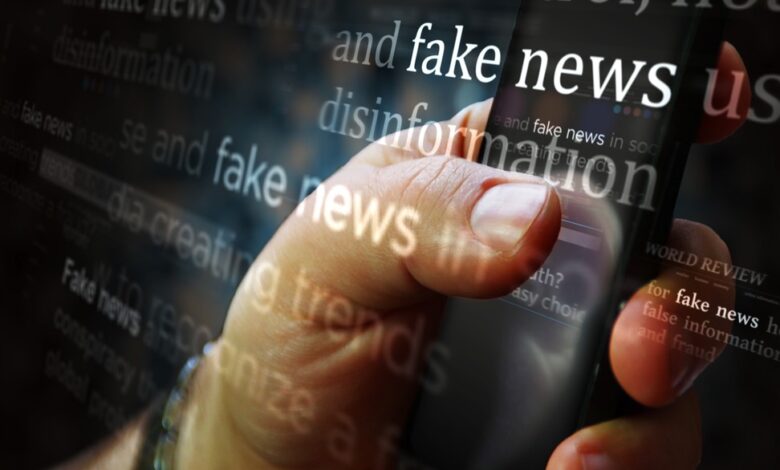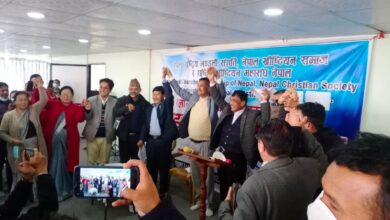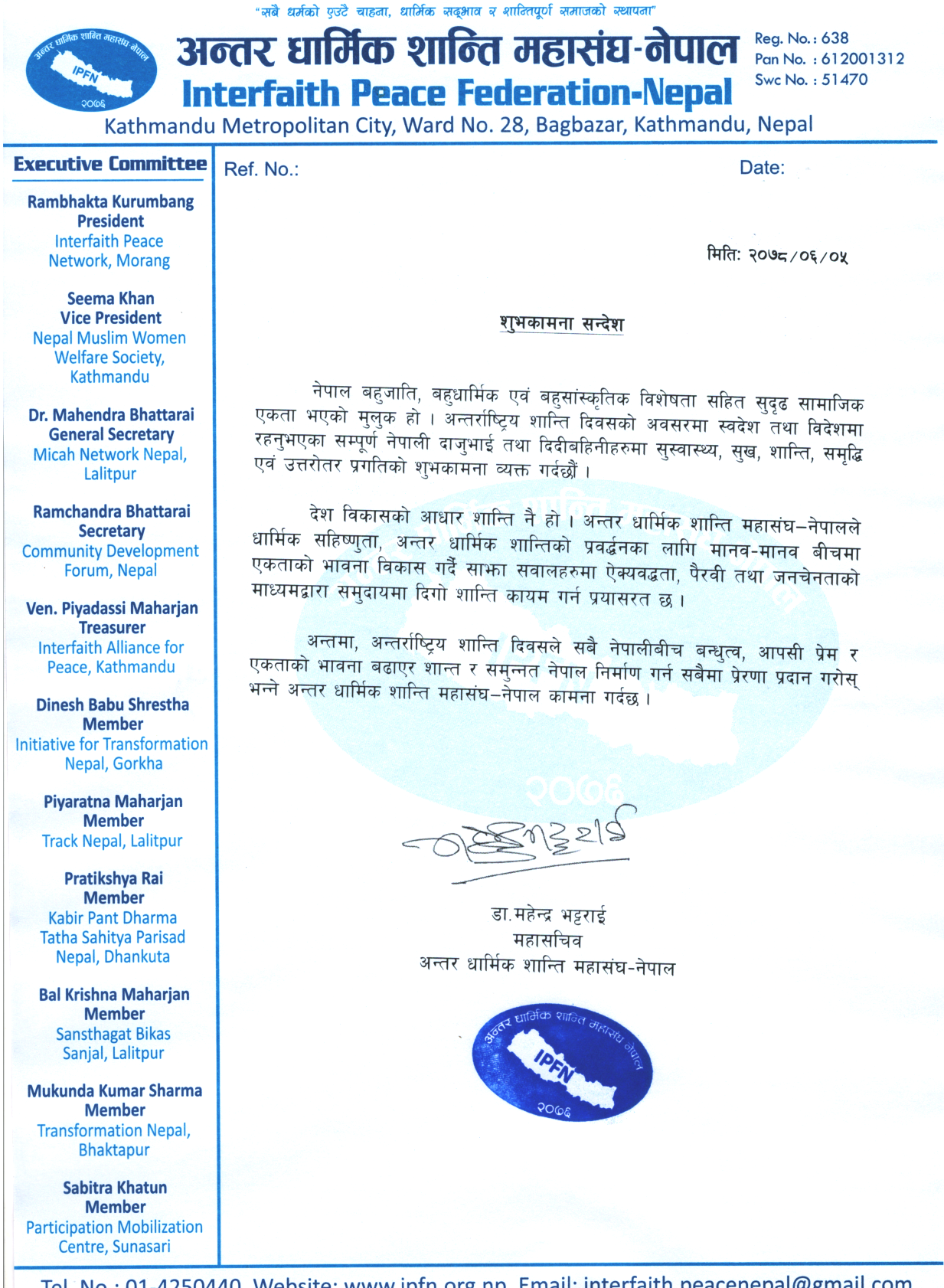What is the Global Disinformation Index?
The Dangers of Doom-mongering!

April 28-
In a previous article, I described how raison d’État – the doctrine by which the State acts in its own interests and ignores constraints of law or natural right – frequently comes in a benevolent guise. Segments of the population are conceived of as vulnerable, and the State exerts a ‘power of care’ to improve their well-being. This ultimately serves the purpose of securing their loyalty in the absence of a theological justification for ruling.
I then went on to describe how raison du monde – the doctrine by which ‘global governance’ regimes act in their own interests and ignore constraints of law or natural right – also frequently comes in a benevolent guise, for precisely the same reasons. In the absence of other justifications for the existence of such regimes that would secure their position, they frequently present themselves as acting to solve ‘global problems’ in need of ‘global solutions.’ This often requires problems to be framed as being impossible for one country acting on its own to solve for itself.
The principle difference between the State and global governance regimes in this regard is hence the target audience. Machiavelli’s raison d’État was self-consciously based on the need to make sure the population remained loyal, because a big danger facing a ruler in early modernity was revolt. This imperative became much stronger as the centuries wore on and revolution became a serious threat to entire systems of rule (and people learned from the example of what happened in France that a modern monarch simply could not rely on divine right to maintain himself in power). Nowadays the matter is a lot more complicated, because of course the fear of revolution has been replaced by that of losing elections, but the underlying dynamic is similar. 
This is not the case with raison du monde. Global governance regimes – whether in the fields of health, human rights, trade, agriculture, fishing, etc. – hardly need concern themselves with what the hoi polloi think; their audience, rather, is the people who fund them.
In almost all cases this means governments and private capital. Put bluntly, if they can retain the loyalty of these ‘stakeholders,’ they retain their position. If not, they will find themselves being abolished. The logic of raison du monde is therefore much more nakedly financially motivated than that of raison d’État.
Global governance is in other words very often straightforwardly a boondoggle – a way to tap into limitless sources of funding that will, with luck, set one up for life.
To demonstrate this, let’s take one of the flavours of the current month – disinformation. Disinformation is, on the reading I have just given, simply one of many nexuses around which the logic of raison du monde gravitates. A problem is identified: disinformation (a category which, for the purposes of brevity, I will use to include ‘misinformation,’ ‘malinformation,’ and so forth). This problem is then conceptualised not as one which is in the capacity of any one national government to solve, but one which is global in nature.
The implication is that a global solution is required. And this gives rise to bodies billing themselves, implicitly or explicitly, as part of a system of global governance whose task it is to solve this problem. These bodies – despite never having been voted for or even spoken about in public by democratically elected politicians – then arrogate for themselves the responsibility to protect us from harm arising from disinformation, and thus ensconce and entrench themselves as necessary features of modern life.
A typical example is the Global Disinformation Index (GDI), which has by now achieved some notoriety. Founded in 2018, its Certificate of Incorporation describes its principal activity as being ‘rating media outlets on their likelihood of carrying disinformation,’ but its (semi-literate) website describes it as providing ‘independent neutral disinformation risk ratings across the open web’ so as to ‘disrupt the business model of disinformation’ and the ‘harm’ it causes – and also ‘strong and consistent leadership’ so as to help its ‘stakeholders…navigate the ever changing disinformation landscape.’
The story is by now familiar and well-rehearsed. Disinformation (defined by the GDI as ‘an intentionally misleading narrative which is adversarial against democratic institutions, scientific consensus or an at-risk group – and which carries a risk of harm,’ roughly translated as ‘anything the technocracy doesn’t like’) is described as a global threat which only self-appointed ‘experts’ can remedy, lest nebulous ‘harm’ emerge. This gives rise to a need for ‘competent and independent voices’ (not national governments) to take the lead. And hence the GDI is born and sustains itself.
The inconsistencies, hypocrisies, and dangers of the disinformation phenomenon are by now very well known and rehearsed, and this is not the place to detail them. What is of interest here is the grift.
Perusing the GDI’s output, one is struck by the thinness of the gruel that it serves up. Much of what it produces is an almost absurdly thin and self-caricaturing series of reports into what it calls ‘Disinfo Ads.’ This, it turns out, means trawling through well-known websites that are widely considered to be bêtes-noires of the contemporary managerial left (Conservative Woman, Zerohedge, Spiked!, Quillette, and the like), collecting screengrabs where prominent brands are advertised on the sites in question next to a purportedly objectionable headline, and then collating a number of screengrabs of such ‘evidence’ of how ads fund ‘toxic disinformation’ in a PDF.
(My favourite example, from this ‘report’ – I use the term loosely – is an article on Spiked! titled ‘Why aren’t we celebrating female athletes’ actual achievements?’ next to an ad for the UK-based chain of opticians, Specsavers. This is apparently evidence of a ‘misogynistic narrative’ which Specsavers should not be indirectly funding.)
Leaving aside substantive questions about politics, what is immediately noticeable about almost all of the ‘evidence’ on display is that it consists of opinion pieces which by definition do not even purport to be statements of fact in the first place and are hence incapable of being ‘information’ at all, whether of the dis-, mis-, mal- or common-or-garden kind. The sloppiness of thought on display is quite shocking, but that is symptomatic of the whole exercise. It is, bluntly, like a rather lame undergraduate media studies project.
The second category of the GDI’s output is its ‘Country Studies,’ in which the online news market in a single jurisdiction is made subject to a pseudo-scientific ‘risk assessment’ exercise. A recent one, for Japan, is illustrative. In it, 33 websites are assigned a ‘risk level’ (minimum, low, medium, high and maximum) on the basis of various indicators (such as ‘headline accuracy,’ ‘article bias,’ or ‘sensational language’ encountered in a cross-sectional sample of articles), and some general conclusions drawn about the media landscape in general.
We are only told which sites make the ‘minimum risk’ level; perhaps the risks associated with disclosing the full list are too high (readers might go and look at some of the high risk sites!) – but it’s more likely just that GDI considers the information proprietary and only shares it with paying customers. Most of these Country Studies seem to have been farmed out to teams of researchers within the countries in question, presumably for a fee (in Japan’s case this was a handful of researchers at Waseda University).
One is not sure exactly what we are supposed to make of them. Japan’s media market is low risk overall. Meanwhile, for Bangladesh, the risks are higher. What do we learn from this? If you’re a well-known brand, advertise in Japan but not Bangladesh? Can the whole exercise really just be about establishing that? I don’t know. The GDI itself doesn’t seem to know either.
The third category is the amorphous ‘Research’ – an ad hoc collection of important-seeming briefings and statements with portentous titles like ‘The Business of Hate’ and ‘The US (Dis)information Ecosystem.’ Here, the visitor to the GDI’s website is struck above all by the paucity of what the organisation has produced. Since April 2019 it has come up with, by my count, a grand total of 17 papers. That’s about four a year.
Most of them, on close reading, replicate the same basic pattern – doom-mongering about disinformation threatening civilisation, lots of anecdotes about ads for well-known brands displayed next to ‘disinformation,’ and much exposition of methodology. Here, the results are not so much akin to a lame undergraduate media studies project as to a lame postgraduate one.
And, finally, the fourth category is commercial activities – by which the GDI performs ‘media buying audits’ and ‘publisher vetting’ so as basically to advise owners of brands where to advertise, and produces a ‘dynamic exclusion list’ of naughty high-risk websites, which can be licensed by platforms to ‘defund and downrank these worst offenders.’ None of these can be particularly popular services, because if they were profitable the GDI would not need to be so heavily subsidised by its funders – more on that later.
The overwhelming feeling, when perusing the GDI’s ouput, is, well, underwhelming. One feels initially that one shouldn’t complain about that – on balance, it’s probably better if these ludicrous popinjays, who have the sheer cheek to set themselves up uninvited as our guardians, do less rather than more. Yet it is galling all the same to reflect on how lavishly funded the organisation apparently is, and how little it seems to do in return.
Information about the GDI’s funding is not readily accessible (despite it having ‘transparency’ as one of its three core values), but it does at least name its funders on its website. These include the Knight Foundation, the National Endowment for Democracy, the Catena Foundation (which funds environmentalist causes – presumably the interest here is in climate change disinformation), the Argosy Foundation, the European Union, and the UK Foreign, Commonwealth and Development Office. Most of the content of this funding is opaque. But for the last one, ostensibly, it is not.
The UK FCDO, it turns out, gave the GDI about £2,000,000 between 2019 and 2022, and around £600,000 this fiscal year. A Freedom of Information request I submitted ascertained that it received £400,000 in FY2018-2019. Not vast sums in the grand scheme of things, but if we assume that the UK FCDO’s contributions were average for the GDI’s funders, and the GDI has 12 such funders, that’s a rough figure of £36 million since the outfit was set up in 2018.
Not bad work if you can get it, especially for such a small company (it only apparently has literally a handful of employees, and net assets of £89,000). Indeed, quite a nice little cottage industry for its directors, who, one would assume, are also salaried employees. A strong incentive, in fact, to overegg the extent to which disinformation really is a global threat, and to dream up increasingly tendentious arguments as to why it should be curtailed.
I don’t mean to suggest for a moment that the GDI is corrupt, and this is not after all a piece of investigative journalism – I am not in the business of exposés. I do not allege for a moment that any of the money that GDI recieves is spent illegitemately in any sense other than the moral, or that it is some kind of ‘get-rich-quick-scheme’ for its founders. It is best understood not as a path to fleecing taxpayers and gullible US-based foundations for megabucks, but rather as a way to spin out a plausible wheeze (preventing ‘harms from adversarial narratives’) into a secure career and steady source of income and thus avoid honest work – ideally indefinitely.
The founders and directors presumably don’t see it in those terms. But few people ever do. It is a remarkable feature of human psychology that we are so brilliant at convincing ourselves that virtue inheres in acting in such a way that aligns with our pecuniary interests, but one that is hardly difficult to understand or rare in the observance.
For all that the logic of raison du monde is predicated on the discovery of global problems and a proliferation of global solutions unconstrained by law or natural right (or democracy, while we’re at it), the drivers at the personal level are much baser: suckling at the teat of governments and charities and extracting a nice living that way for as long as possible – usually while persuading oneself that one is doing something terribly worthwhile.
This has of course always been a feature of governance regimes in general and clearly motivates the vast proliferation of governing apparatuses, in both public and private spheres, to which we are increasingly subject. But in the ‘global’ arena the problem is much more acute, precisely because information (actual information, that is) about funding is so difficult to identify, and because there is basically no way for informed citizens to even begin to exercise the kind of oversight which they can – in admittedly very attenuated form – within the borders of the nation state.
For the individuals engaged in this diffuse but effective boondoggle this is, of course, a feature rather than a bug, and it is amusing to see just how much of the GDI’s invective is reserved for ‘populists and authoritarians’ who increase their ‘visibility and power at the expense of competent and independent voices.’ For ‘competent and independent’ one should probably read ‘self-important and anti-democratic,’ but the basic principle is obvious.
Courtesy: Brownstone Institute: https://brownstone.org/articles/what-is-the-global-disinformation-index/




